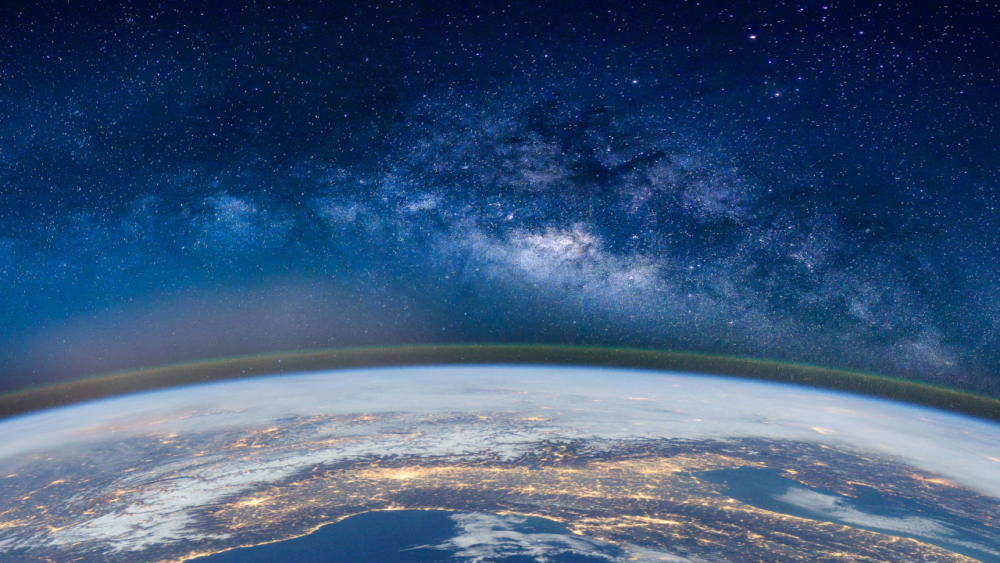


Guillermo Gonzalez on 20th Anniversary Edition of The Privileged Planet

Jay Richards on New Expanded Edition of The Privileged Planet

Our Finely Tuned Planet Suggests More than Dumb Luck
Today’s ID the Future spotlights Canceled Science: What Some Atheists Don’t Want You to See with a focus on the book’s look at our privileged planet Earth, and how its location in the galaxy and solar system, as well as various unusual features, makes it strikingly fit for life. Is it just “dumb luck,” as one scientist put it? Host Eric Anderson continues his multi-part conversation with the book’s author, Biola physics professor Eric Hedin, who suggests that “dumb luck” is more of a cop-out than an explanation, and that when one takes all the evidence together, a better explanation for our finely tuned place in the cosmos is a fine-tuner, a designing intelligence. It’s just a taste of the Read More ›

Physicist Eric Hedin: Cosmology Points to Cosmic Design
On this ID the Future host Eric Anderson continues his conversation with physicist and Canceled Science author Eric Hedin. Here Hedin argues that the dogmatic rule that natural science should only ever invoke natural causes has at its heart a logical problem. He and Anderson also review some startling cases of fine-tuning for life and why a “theory of everything” would not solve the fine-tuning problem for atheists but merely move it back to the theory of everything itself. Also in today’s conversation, a highly accessible flyover of how scientists came to realize that the universe wasn’t eternal but had had a beginning. Hedin also tackles a theological poser: If the universe was designed for life, why did the designer Read More ›

Stephen Meyer: Yes, Intelligent Design is Detectable in Nature
On this episode of ID the Future, Andrew McDiarmid reads a popular essay by philosopher of science Stephen Meyer on the detectability of intelligent design in nature. The article recently appeared in Sapientia, and here at Evolution News. In the piece, Meyer explains the logic by which we routinely know there’s been a creative intelligence at work. Meyer unpacks this logic in terms of information, which we can see clearly in the cell, but elsewhere in nature, too. He also shows how this detection method is an established part of the historical sciences.
Read More ›
Michael Denton Reads the First Pages of His New Book, The Wonder of Water
In this episode of ID the Future, geneticist and biochemist Michael Denton reads the beautiful introduction to his new book, The Wonder of Water. He begins at Yosemite’s Bridalveil Fall and explores how water is curiously fine-tuned for life. Indeed, thanks to a unique cluster of properties, water is able to fulfill many roles essential to our living planet. It’s thanks to some of those properties that rivers and streams can leech and carry minerals from rock to various places they’re needed in the biosphere. Water’s unusual properties also make it an ideal medium for our circulatory system. There it serves not only to transfer nutrients and oxygen but also expel carbon dioxide, excess body heat, and waste products — again, thanks to a unique cluster of properties. Denton’s new book can be purchased here.
Read More ›
How a Perfect Solar Eclipse Suggests Intelligent Design
On this episode of ID: The Future, CSC Senior Fellow Jay Richards explains how perfect solar eclipses are the tip of an iceberg-size design argument found in a book he co-wrote, The Privileged Planet. The conditions for a habitable planet (right distance from the right size star, a big but not too big moon that is the right distance away to stabilize Earth’s tilt and circulate its oceans) are also conditions that make perfect solar eclipses from the Earth’s surface much more likely. And perfect eclipses aren’t just eerie and beautiful. They’ve helped scientists test and discover things, and are part of a larger pattern: The conditions needed for a habitable place in the cosmos correlate with the conditions well suited for scientific discovery. As Richards notes, this correlation is inexplicable if the cosmos is the product of chance. But if it’s intelligently designed with creatures like us in mind, it’s just what we might expect.
Read More ›